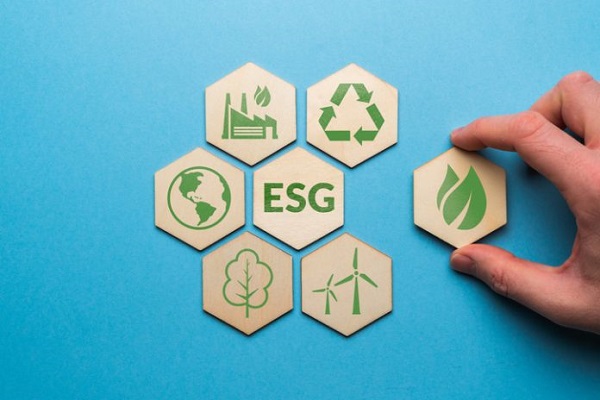Business
GDP growth at a standstill in Canada, oil and gas sector one major bright spot – Conference Board of Canada

Article submitted by the Conference Board of Canada
Muted Outlook for Canadian Economy
Consumer Spending Holding Strong Despite Confidence Being Weak
Despite the progress that has been made, inflation is still weighing down Canada’s economy according to new research from The Conference Board of Canada. In keeping with its previous forecast, real GDP growth will be at a virtual standstill for the rest 2023. For the year as a whole that means a 0.9 per cent gain, followed by only a modest 1.4 per cent improvement in 2024.
“Concerns about the U.S. financial system are unlikely to be mirrored in Canada given our country’s more concentrated banking system,” stated Ted Mallett, Director, Economic Forecasting at The Conference Board of Canada. “The indirect effects will be muted, and business investment was already expected to be weak in Canada so there is relatively little business lending to pull back.”
The global economy has slowed sharply over the past year as major central banks have increased interest rates, but despite the weak near-term growth anticipation, the chances of a severe global recession have receded. Inflation remains a threat, but two key developments provide reason for optimism. The first is the mild winter in Europe eased concerns of an energy crunch, with natural gas prices now lower than before the Russian invasion of Ukraine. The second is China’s removal of the zero-COVID policy, which saw their economy open at a much faster pace than anticipated.
The U.S. economy continues to defy expectations, with an expansion of 2.7 per cent in the final quarter of last year. Several factors should ensure that the coming slowdown in economic growth won’t be as severe as past slumps in economic activity. The major reason behind this view is the excess savings that households in America built up during the pandemic when the opportunity to spend was severely limited.
A slower U.S. economy will weigh on Canada’s trade results in the coming months, but the exports sector will still see a good showing in 2023, according to The Conference Board of Canada. Supply chain disturbances, which significantly restrained activity for many export sectors last year, have shown signs of easing over the past several months. A weak domestic economy, the depreciation of the loonie, and a steep decline in machinery and equipment investment will lead to muted activity for total real imports this year.
The oil and gas sector is a major bright spot in Canada thanks to strong corporate profits and ongoing projects in Western Canada and Newfoundland and Labrador.
Canada’s labour market has seen an impressive start to 2023, according to The Conference Board of Canada, which is being fuelled by an uptick in population growth. International migration to Canada has risen sharply in recent quarters, driven by record immigration targets and increased admissions of non-permanent residents, including temporary foreign workers.
Higher mortgage rates have slowed residential demand and unsurprisingly, the resale market has corrected with sales and prices decreasing. This downturn will frustrate some homeowners who bought at peak prices, while higher interest rates could severely impact some homeowners forced to renew mortgages at higher interest rates.
“While much of the COVID-19 support spending is now in the rear-view mirror, governments continue to have a heightened presence in the economy,” continued Mallett. “The pandemic brought about a new era of challenges to public finances, which were hardly looking rosy heading into the pandemic. The most notable question mark in today’s fiscal climate is how well governments can cope with new economic shocks.”
Business
Ottawa should end war on plastics for sake of the environment

From the Fraser Institute
Here’s the shocker: Meng shows that for 15 out of the 16 uses, plastic products incur fewer GHG emissions than their alternatives…
For example, when you swap plastic grocery bags for paper, you get 80 per cent higher GHG emissions. Substituting plastic furniture for wood—50 per cent higher GHG emissions. Substitute plastic-based carpeting with wool—80 per cent higher GHG emissions.
It’s been known for years that efforts to ban plastic products—and encourage people to use alternatives such as paper, metal or glass—can backfire. By banning plastic waste and plastic products, governments lead consumers to switch to substitutes, but those substitutes, mainly bulkier and heavier paper-based products, mean more waste to manage.
Now a new study by Fanran Meng of the University of Sheffield drives the point home—plastic substitutes are not inherently better for the environment. Meng uses comprehensive life-cycle analysis to understand how plastic substitutes increase or decrease greenhouse gas (GHG) emissions by assessing the GHG emissions of 16 uses of plastics in five major plastic-using sectors: packaging, building and construction, automotive, textiles and consumer durables. These plastics, according to Meng, account for about 90 per cent of global plastic volume.
Here’s the shocker: Meng shows that for 15 out of the 16 uses, plastic products incur fewer GHG emissions than their alternatives. Read that again. When considering 90 per cent of global plastic use, alternatives to plastic lead to greater GHG emissions than the plastic products they displace. For example, when you swap plastic grocery bags for paper, you get 80 per cent higher GHG emissions. Substituting plastic furniture for wood—50 per cent higher GHG emissions. Substitute plastic-based carpeting with wool—80 per cent higher GHG emissions.
A few substitutions were GHG neutral, such as swapping plastic drinking cups and milk containers with paper alternatives. But overall, in the 13 uses where a plastic product has lower emissions than its non-plastic alternatives, the GHG emission impact is between 10 per cent and 90 per cent lower than the next-best alternatives.
Meng concludes that “Across most applications, simply switching from plastics to currently available non-plastic alternatives is not a viable solution for reducing GHG emissions. Therefore, care should be taken when formulating policies or interventions to reduce plastic demand that they result in the removal of the plastics from use rather than a switch to an alternative material” adding that “applying material substitution strategies to plastics never really makes sense.” Instead, Meng suggests that policies encouraging re-use of plastic products would more effectively reduce GHG emissions associated with plastics, which, globally, are responsible for 4.5 per cent of global emissions.
The Meng study should drive the last nail into the coffin of the war on plastics. This study shows that encouraging substitutes for plastic—a key element of the Trudeau government’s climate plan—will lead to higher GHG emissions than sticking with plastics, making it more difficult to achieve the government’s goal of making Canada a “net-zero” emitter of GHG by 2050.
Clearly, the Trudeau government should end its misguided campaign against plastic products, “single use” or otherwise. According to the evidence, plastic bans and substitution policies not only deprive Canadians of products they value (and in many cases, products that protect human health), they are bad for the environment and bad for the climate. The government should encourage Canadians to reuse their plastic products rather than replace them.
Author:
Business
ESG Puppeteers

From Heartland Daily News
By Paul Mueller
The Environmental, Social, and Governance (ESG) framework allows a small group of corporate executives, financiers, government officials, and other elites, the ESG “puppeteers,” to force everyone to serve their interests. The policies they want to impose on society — renewable energy mandates, DEI programs, restricting emissions, or costly regulatory and compliance disclosures — increase everyone’s cost of living. But the puppeteers do not worry about that since they stand to gain financially from the “climate transition.”
Consider Mark Carney. After a successful career on Wall Street, he was a governor at two different central banks. Now he serves as the UN Special Envoy on Climate Action and Finance for the United Nations, which means it is his job to persuade, cajole, or bully large financial institutions to sign onto the net-zero agenda.
But Carney also has a position at one of the biggest investment firms pushing the energy transition agenda: Brookfield Asset Management. He has little reason to be concerned about the unintended consequences of his climate agenda, such as higher energy and food prices. Nor will he feel the burden his agenda imposes on hundreds of millions of people around the world.
And he is certainly not the only one. Al Gore, John Kerry, Klaus Schwab, Larry Fink, and thousands of other leaders on ESG and climate activism will weather higher prices just fine. There would be little to object to if these folks merely invested their own resources, and the resources of voluntary investors, in their climate agenda projects. But instead, they use other people’s resources, usually without their knowledge or consent, to advance their personal goals.
Even worse, they regularly use government coercion to push their agenda, which — incidentally? — redounds to their economic benefit. Brookfield Asset Management, where Mark Carney runs his own $5 billion climate fund, invests in renewable energy and climate transition projects, the demand for which is largely driven by government mandates.
For example, the National Conference of State Legislatures has long advocated “Renewable Portfolio Standards” that require state utilities to generate a certain percentage of electricity from renewable sources. The Clean Energy States Alliance tracks which states have committed to moving to 100 percent renewable energy, currently 23 states, the District of Columbia, and Puerto Rico. And then there are thousands of “State Incentives for Renewables and Efficiency.”
Behemoth hedge fund and asset manager BlackRock announced that it is acquiring a large infrastructure company, as a chance to participate in climate transition and benefit its clients financially. BlackRock leadership expects government-fueled demand for their projects, and billions of taxpayer dollars to fund the infrastructure necessary for the “climate transition.”
CEO Larry Fink has admitted, “We believe the expansion of both physical and digital infrastructure will continue to accelerate, as governments prioritize self-sufficiency and security through increased domestic industrial capacity, energy independence, and onshoring or near-shoring of critical sectors. Policymakers are only just beginning to implement once-in-a-generation financial incentives for new infrastructure technologies and projects.” [Emphasis added.]
Carney, Fink, and other climate financiers are not capitalists. They are corporatists who think the government should direct private industry. They want to work with government officials to benefit themselves and hamstring their competition. Capitalists engage in private voluntary association and exchange. They compete with other capitalists in the marketplace for consumer dollars. Success or failure falls squarely on their shoulders and the shoulders of their investors. They are subject to the desires of consumers and are rewarded for making their customers’ lives better.
Corporatists, on the other hand, are like puppeteers. Their donations influence government officials, and, in return, their funding comes out of coerced tax dollars, not voluntary exchange. Their success arises not from improving customers’ lives, but from manipulating the system. They put on a show of creating value rather than really creating value for people. In corporatism, the “public” goals of corporations matter more than the wellbeing of citizens.
But the corporatist ESG advocates are facing serious backlash too. The Texas Permanent School Fund withdrew $8.5 billion from Blackrock last week. They join almost a dozen state pensions that have withdrawn money from Blackrock management over the past few years. And last week Alabama passed legislation defunding public DEI programs. They follow in the footsteps of Florida, Texas, North Carolina, Utah, Tennessee, and others.
State attorneys general have been applying significant pressure on companies that signed on to the “net zero” pledges championed by Carney, Fink, and other ESG advocates. JPMorgan and State Street both withdrew from Climate Action 100+ in February. Major insurance companies started withdrawing from the Net-Zero Insurance Alliance in 2023.
Still, most Americans either don’t know much about ESG and its potential negative consequences on their lives or, worse, actually favour letting ESG distort the market. This must change. It’s time the ESG puppeteers found out that the “puppets” have ideas, goals, and plans of their own. Investors, taxpayers, and voters should not be manipulated and used to climate activists’ ends.
They must keep pulling back on the strings or, better yet, cut them altogether.
Paul Mueller is a Senior Research Fellow at the American Institute for Economic Research. He received his PhD in economics from George Mason University. Previously, Dr. Mueller taught at The King’s College in New York City.
Originally posted at the American Institute for Economic Research, reposted with permission.
-

 COVID-192 days ago
COVID-192 days agoCOVID Lab Leak: Over four later, EcoHealth Alliance funding is finally suspended
-

 Business2 days ago
Business2 days agoESG Puppeteers
-

 COVID-192 days ago
COVID-192 days agoNIH Quietly Altered Definition For Gain-Of-Function Research On Its Website, Former Fauci Aide Confirms
-

 Crime1 day ago
Crime1 day agoThe US Canadian border: Greatest number of terrorist watch list individuals being apprehended at northern border
-

 illegal immigration1 day ago
illegal immigration1 day agoSuspected Terrorists Illegally Entering US Up Over 2,500% Under Biden From Trump Era
-

 Business1 day ago
Business1 day agoOttawa should end war on plastics for sake of the environment
-

 Opinion19 hours ago
Opinion19 hours agoOrdinary working Canadians are not buying into transgender identity politics
-

 Energy19 hours ago
Energy19 hours agoNew Report Reveals Just How Energy Rich America Really Is









